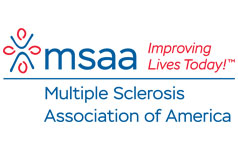People with multiple sclerosis (MS) report feeling anxious, depressed, and angry at different points in the disease journey. While these emotional and psychological symptoms can be associated with nervous system damage brought on by MS, and may be reactions to everyday life and events, they can also be a response to a relapse.
A relapse is often a crisis point that is not only associated with worsening or new symptoms, but can disrupt home, work, and family life. The experience of dealing with a relapse may change the way that people with MS see themselves, and signal a shift in that self-image from being an able-bodied person to someone living with a chronic disease. In particular, a second or third attack may provoke fresh feelings of fear about the future, grief about losing one’s old way of life and sense of self, as well as anger.
Reactions of grief, anxiety, guilt, and anger might be especially strong during early relapses, especially if they include acute physical and cognitive symptoms that limit the ability to function. A second or third relapse can feel emotionally devastating, especially if the first attack resolved on its own or responded to treatment. Sometimes, experiencing another relapse is viewed by individuals with MS as a reminder of the chronic nature of MS.
Managing anger and other strong feelings is possible if you cultivate a good support network and have access to someone who understands the implications of the sudden reappearance of old symptoms or the development of new ones. Dealing with these feelings is also important, because anger that is suppressed can have an impact on your overall health and wellbeing. In fact, research shows that compared with the general population, people with MS have a higher tendency to withhold anger. Some researchers think that MS-associated nervous system damage (demylination) might even cause people to hold on to a lot of anger.
Holding on to anger can disrupt personal and work relationships and is associated with multiple physical problems, such as high blood pressure and vascular disorders. Feelings of anger and irritability can also be linked to psychosocial problems such as anxiety and depression. Depression affects more people with MS than the general population, and in turn, can affect learning, memory, executive functioning, and social cognition. Anger can also interfere with the ability to actively manage relapses and any ongoing symptoms of MS.
You can learn to deal with anger in numerous ways:
- Cultivate a strong social support system to help buffer the effects of stress and help you adjust psychologically to MS and to relapses.
- Talk to your healthcare provider about your feelings and about other psychosocial issues (e.g. changes in your family or employment).
- Ask your healthcare provider to screen you for depression and cognitive symptoms.
- If you do have symptoms of depression or anxiety, prompt referral to mental health professionals and other resources (e.g., self help groups, counseling, physical therapy) can help you develop strategies for anger management and emotional acceptance.
Early treatment with a disease-modifying therapy (DMT) for relapsing forms of MS is recommended by the American Academy of Neurology (AAN) and most healthcare professionals. If, at the time of a second or even third relapse, you have not yet started disease-modifying therapy, strongly consider discussing this option with your healthcare provider. The MSAA S.E.A.R.C.H. Toolkit can help you to find the right treatment option.
Resources
Halper J. The psychosocial effect of multiple sclerosis: the impact of relapses. J Neurol Sci 2007;256 Suppl 1:S34-8.
Heesen C Köpke S, Kasper J, et al. Behavioral Interventions in Multiple Sclerosis. Exp Rev Neurothera. 2012;12(9):1089-1100.
Kalb R. The emotional and psychological impact of multiple sclerosis relapses. J Neurol Sci 2007;256 Suppl 1:S29-33.
Lejbkowicz I, Caspi O, Miller A. Participatory medicine and patient empowerment towards personalized healthcare in multiple sclerosis. Expert Rev. Neurother. 12(3), 343–352(2012).
Mohr DC, Genain C. Social support as a buffer in the relationship between treatment for depression and T-cell production of interferon-γ in patients with multiple sclerosis. J. Psychosom. Res. 57(2), 155–158(2004).
Nocentini U, Tedeschi G, Migliaccio R, et al. An exploration of anger phenomenology in multiple sclerosis. Euro J Neurol. 2009;16(12).
Plow MA, Finlayson M, Rezac M. A scoping review of self-management interventions for adults with multiple sclerosis. PM R 3(3), 251–262(2011).
Ross AP, Halper J, Harris CJ. Assessing relapses and response to relapse treatment in patients with multiple sclerosis: a nursing perspective. Int J MS Care. Fall 2012;14(3):148-159.













